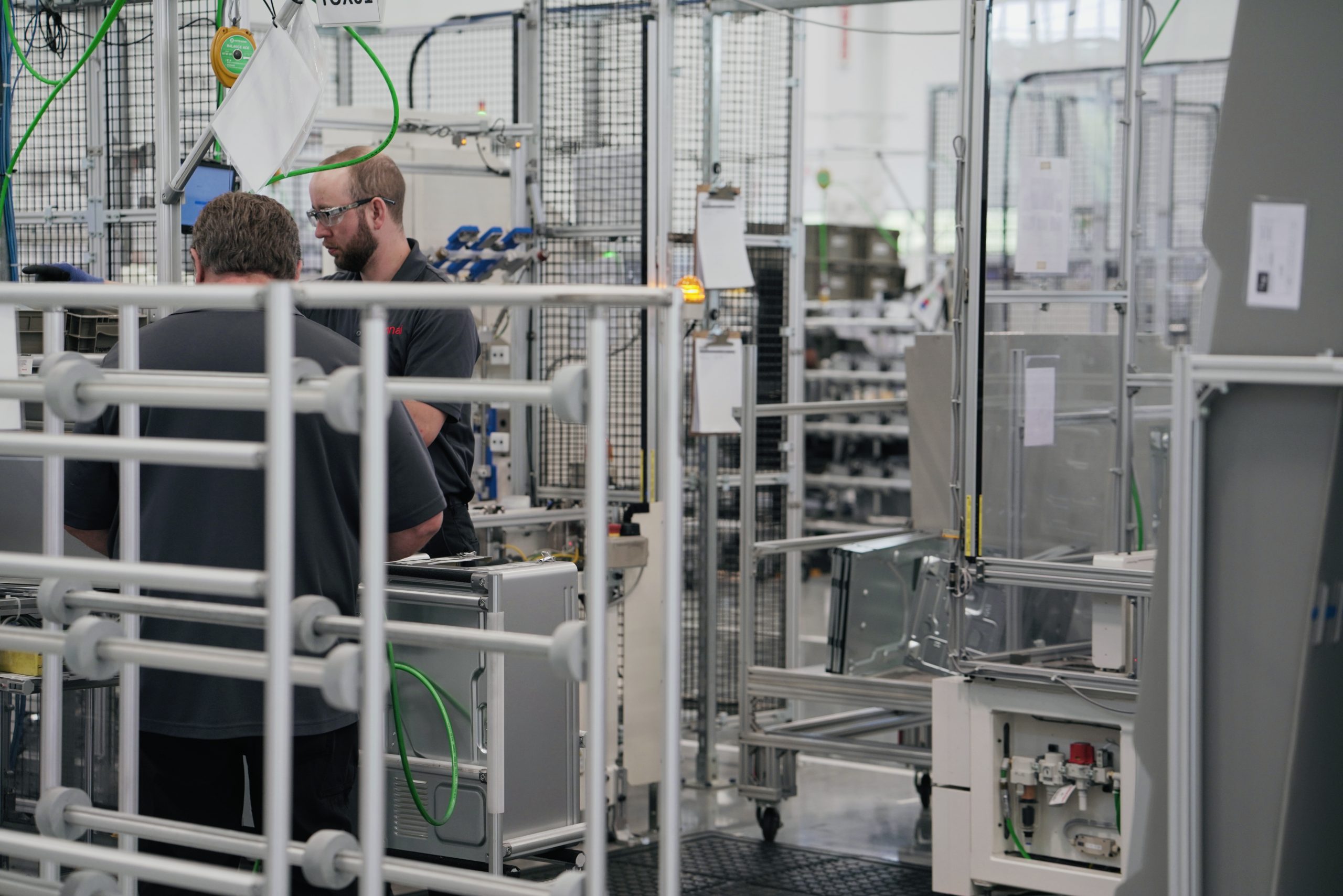GRIFFIN, Ga.—At first glance, a water heater manufacturing plant may seem like an odd place for Energy Secretary Chris Wright to celebrate the first 100 days of the Trump administration’s energy agenda. Under his leadership, the Energy Department has already bolstered investment in nuclear energy, slashed spending, and entered into high-profile international energy agreements.
But the 300,000-square-foot plant nestled about an hour south of Atlanta in the unassuming city of Griffin, Ga.—operated by the manufacturer Rinnai USA and employing roughly 250 locals—became collateral damage last year in the previous administration’s sprawling war on fossil fuels and gas-powered appliances.
In late December, the Biden DOE quietly finalized rules that hiked efficiency standards for gas-powered instantaneous water heaters to a threshold that only certain more expensive models can meet, effectively banning cheaper but less efficient non-condensing models. The 11th-hour rules would likely have forced the Griffin facility, one of the nation’s only facilities that produces those targeted models, to shut its doors and lay off hundreds.
“Some guys in Washington are going to decide what kind of hot water heater you can own? That’s just insane,” Wright told the Washington Free Beacon following a tour of the factory. “There’s no way we are going to enforce a rule to reduce choice for Americans.”
“These are manufacturing jobs. The goal of our administration is to make more stuff in the United States, to supply Americans, and to sell it abroad,” he continued. “This is a growing manufacturing plant that would have been killed. And this is working class rural America—this is the heart of Trump country and really an anchor of common sense in our country.”

In one of his first actions as energy secretary, Wright halted implementation of the Biden-era water heater regulations and created an entirely new energy efficiency category for natural-gas-powered tankless water heaters. At the same time, Rep. Brian Jack (R., Ga.), who represents Griffin’s congressional district, helped craft legislation formally blocking the Biden administration’s actions.
Despite a late push to preserve the regulations by Rinnai’s largest competitors, Congress passed Jack’s bill and companion legislation introduced by Sen. Ted Cruz (R., Texas) in recent weeks. President Donald Trump is expected to sign the bill into law as soon as next week.
Wright’s actions, coupled with those from Congress, likely saved Rinnai’s Griffin plant and the jobs of its workers. On Friday, surrounded by water heaters, assembly lines, and hulking shelving units containing boxes full of components, Wright and Jack addressed those workers, who they said represent an early success story of the Trump administration’s energy agenda.
“This is a massive win for our community,” Jack remarked. “I think this success story is one of the many, many accomplishments over President Trump’s first 100 days. Secretary Wright has worked overtime to deliver win after win after win for the American people.”
“President Trump wishes he could be here, but his message to everyone here is: God bless what you do every day,” Wright added in his speech. “You are changing the lives of millions of people who willingly and anxiously buy the products you make that make their lives better.”

As for Rinnai, company president Frank Windsor said he hopes it can return to focusing on manufacturing reliable appliances and expanding its national footprint—not on the actions of bureaucrats in Washington, D.C. But he said the company will now shift its focus to state-level regulations targeting gas appliances.
State and local governments in California, Colorado, Maryland, and New York, for example, have passed restrictions or bans on gas hookups in new or existing construction—a top priority of climate activists and environmental interest groups, who argue appliances produce high levels of carbon emissions and contribute to global warming.
Windsor said he hopes the Department of Justice will intervene in certain situations to protect Rinnai’s business and consumers who live in those regions.
“We hope at some point that we can just move forward and focus in on just selling products and taking care of our customers,” Windsor told the Free Beacon. “We really don’t even want to be in the fight.”
“The one thing I’ve learned through this whole process is that people don’t see people—they see a policy, they see an efficiency number, they see a regulation that they want to enact. But they don’t take into consideration the ramifications of what that means,” he continued. “It’s not only to our team members here in our factory. We’ve got 250 workers—they come here and work every day, and they’re providing for their families. But it’s also the consumers that lose their choice. Consumers should be able to choose how they want to make hot water.”

Rinnai first announced its investment of tens of millions of dollars to build the Griffin factory at the end of the first Trump administration. The facility came online in 2022 and has since produced about 500,000 units.
Overall, instantaneous tankless water heaters have surged in popularity in recent years, though tank models remain the most common type in the American market. Over the last decade, the market share of tankless water heaters has increased from 7 percent to 23 percent.
The models targeted by the Biden-era regulations account for roughly 40 percent of all tankless water heaters currently sold.
Wright, meanwhile, told the Free Beacon that his agency will continue to eliminate burdensome Biden-era regulations and will shift its focus to other appliances, such as gas stoves and furnaces.
Original News Source – Washington Free Beacon
Running For Office? Conservative Campaign Management – Election Day Strategies!
